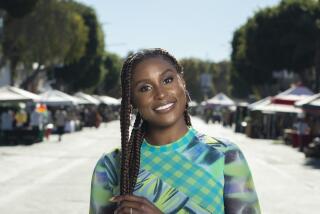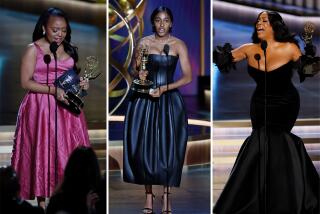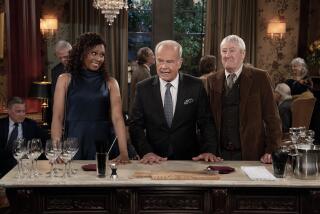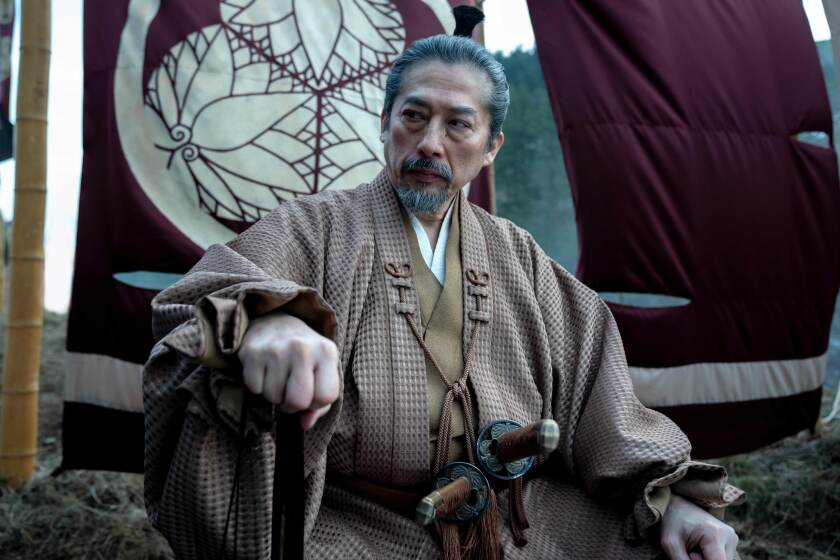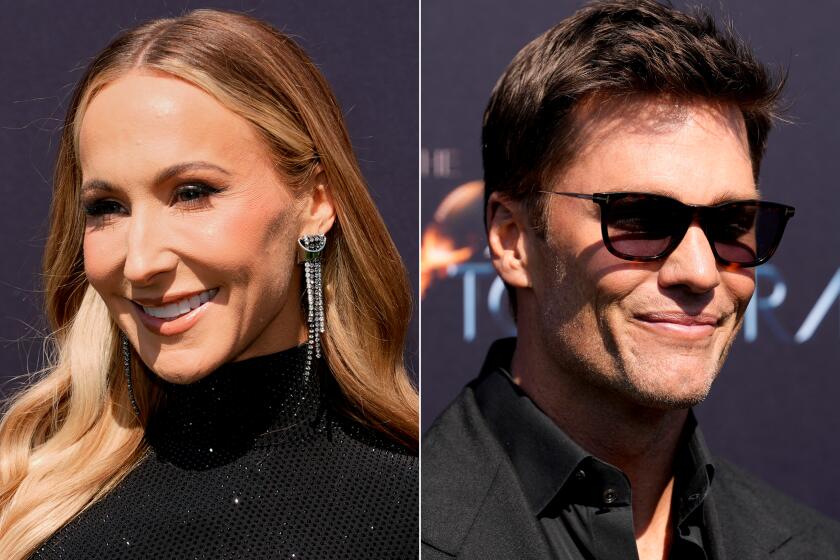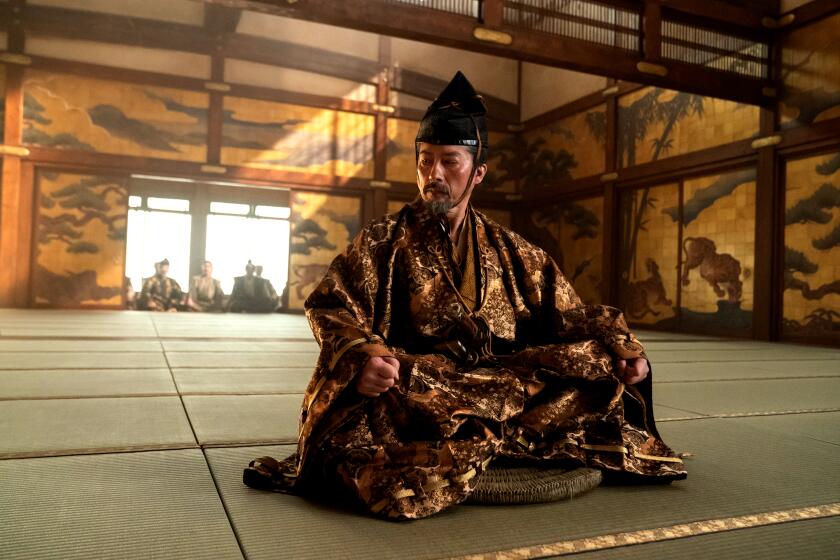Expanding the Role of African-Americans on TV : Black Shows Should Have as Much Dramatic License as White Shows
Greg Braxton’s article on the unprecedented number of prime-time series featuring African-Americans this season (“Where More Isn’t Much Better,” Calendar, Oct. 4) can only end up hurting blacks on TV.
When the networks see articles like this about the dilemmas faced by producers, they say forget about black shows, we don’t want the problems.
Television is run and controlled by whites. There are some token black executives--CBS’ Kelly Goode, ABC’s Mary Ann Henderson, Showtime’s Dennis Johnson, to name a few. But try to get a meeting with them if you’re not (Tom) Miller-(Robert) Boyette, (Marcy) Carsey-(Tom) Werner, (Linda) Bloodworth-Thomason, Bernie Brillstein or the like.
Getting a show on the air is very hard. Despite what ABC executive Ted Harbert says in the article (“the talent pool in the black community has increased . . . there are a lot more black writers who are solid pros”), black writers like myself have a difficult time getting an opportunity to show what they can do. The point of commercial TV is to make money, with the least amount of trouble.
Braxton reports that media watchers find male characters in the new crop of black shows “lazy” and females presented either as “domineering” or as “sex objects.” What’s wrong with Holly Robinson (“Hangin’ With Mr. Cooper”) or Vivica A. Fox (“Out All Night”) wearing revealing outfits?
Can’t black women be sexy? Christie Brinkley and Cindy Crawford wear mini’s and pose in thong bikinis and no one says anything.
And the article says that some eyebrows have been raised because Martin Lawrence, in his self-named show, plays a character in drag. What about the Emmy Award-winning show “MASH,” which had the character of Klinger in drag much of the time? Tom Hanks starred in “Bosom Buddies,” a series about two guys in drag. Milton Berle (Uncle Miltie) became America’s favorite son playing a guy in drag.
Apparently what’s good for successful white shows of the past isn’t good for black shows of the present or future.
In the case of NBC’s new “Rhythm & Blues” series (which the network has just put on hiatus), Braxton reports that it has been knocked for having a racist premise--it stars Roger Kabler as a white guy who speaks “street.” Have you heard white rappers Marky Mark, Vanilla Ice, Donny Wahlberg (New Kids on the Block) or the Beastie Boys speak? They speak more “street funk” than James Brown.
Because every black person doesn’t speak like James Earl Jones, does that make him or her any less or more black?
There are all types of blacks--dark skin, light skin, people who wear cornrows, perms and natural hairstyles, but all are still black.
Should Johnny Mathis be put down because some people say he’s not “black” enough? Should Flavor Flav (of the rap group Public Enemy) be put down because some people say he’s “too” black?
My character of J.J. on “Good Times” was referred to in Braxton’s story as using “jive talk.” I’m proud that J.J. is still being done on successful shows such as “The Fresh Prince of Bel Air” (Will Smith), “Family Matters” (Jaleel White) and now “Out All Night” (Duane Martin).
If you look at the J.J. character in a time when more than 50% of inner-city youths are unemployed, he worked. He tried to take care of his family when needed and had a fierce respect and love for family. He didn’t do drugs, and talked friends out of doing them. This was before it was in to “Just Say No” to drugs.
J.J. wasn’t involved in gang activities, and was shot for not joining a gang. Wow! Just like real life. His art won him many awards and later a job as a graphic artist. He was laid off. What? Just like real life.
The J.J. character was a little wild, a little bit of a cartoon, but he was funny, smart and harmless. It doesn’t get any better than that.
Braxton’s article sells black intellect short and seems to suggest that if black people see a character on TV, they will think it is real. Give black folks some credit.
We don’t believe all white people are like Jim from “Taxi,” Kramer from “Seinfeld,” the Darryl brothers from “Newhart” or Ted Baxter from “The Mary Tyler Moore Show.” They are characters, and to make a comedy go, you have to have characters, real and inspired.
No, not all black shows on the air are good but neither are all white ones. Give black shows a chance to be good and bad. Let us develop writers and directors from these good and bad shows, just like the white folks did.
Perhaps Braxton won’t be happy until all black shows are off the air. Then he’ll write another article, “Why aren’t there any blacks on TV?”
More to Read
The complete guide to home viewing
Get Screen Gab for everything about the TV shows and streaming movies everyone’s talking about.
You may occasionally receive promotional content from the Los Angeles Times.
